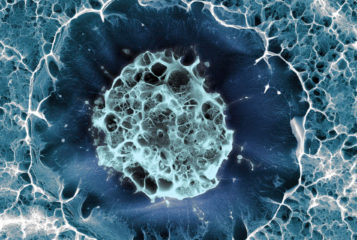One of the world's largest sets of human stem cell lines from healthy people was unveiled last week.
The 711 induced pluripotent stem cell (iPSC) lines derived from 301 healthy volunteers were released by a large European consortium in the journal Nature. The hope is that because iPSCs have the potential to develop into any type of cell in the body, that researchers will be able to use these new stem cell lines to study human development and diseases such as cancer and Alzheimer's.
The new iPSC lines took four years to establish, and show much variation in the genome is down to differences between healthy individuals.
'We were able to show similar characteristics of iPS cells from the same person, and revealed that up to 46 percent of the differences we saw in iPS cells were due to differences between individuals,' said Professor Fiona Watt, a lead study author at King's College London who co-leads HipSci. 'These data will allow researchers to put disease variations in context with healthy people.'
“This kind of study is extremely important because it leads to a deeper understanding of the differences between normal genetic variation and genetic changes that could negatively impact cell behaviour,' said Dr Andrés Bratt-Leal, at The Scripps Research Institute in La Jolla, US, who was not involved in the study. Together with Dr Jeanne Loring, he is leading a project investigating the use of iPSCs for the treatment of Parkinson's disease.
He told the San Diego Union-Tribune newspaper: 'This data will help scientists using induced pluripotent stem cells to model diseases as well as scientists developing cell therapies.'
Other research organisations involved in HipSci include the European Bioinformatics Institute, the University of Dundee and the University of Cambridge.





Leave a Reply
You must be logged in to post a comment.